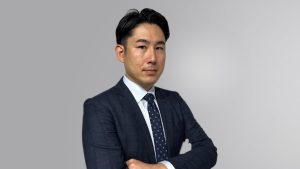Fronteo to Discontinue Nasdaq Listing
News has emerged that Fronteo, which was listed on Nasdaq, will be delisting. Fronteo listed on Nasdaq in May 2013 and will now be discontinuing its listing after approximately seven years.
Following the delistings of Internet Initiative Japan (IIJ) and Pepper Food Service in 2019, Fronteo’s delisting means that for the first time since 1971, there will be no Japanese companies (Note: excluding the listing by the U.S. subsidiary of Kura Sushi) on Nasdaq. (Addendum June 8, 2022: For the latest information on Japanese companies listed on Nasdaq, please refer to this article.)
The Background of the Nasdaq Delisting
In its company release, Fronteo explained that the significance of its Nasdaq listing had diminished: “Since listing on NASDAQ, we have been able to expand our operations throughout the U.S. and grow our business. We also built the foundation for our current AI review system by establishing relationships with major U.S. law firms. The objectives we set at the time of our listing have, at this point, been achieved.”
However, the company also disclosed the candid, underlying reason—the cost burden: “On the other hand, we took into account the current situation of incurring substantial costs for financial reporting and other listing maintenance. We have comprehensively determined that we must concentrate our financial and human resources on the transformation of our AI-based business model, and have therefore decided to apply for delisting from NASDAQ and deregistration from the SEC.”
In fact, Fronteo’s audit costs had been snowballing in recent years. If we organize the audit fees listed in the company’s Annual Securities Reports (Yuka Shoken Hokokusho) (adjusted for prior-year overage settlements), the figures are as follows:
| Fiscal Year End | Audit Fee | Auditor |
| March 2019 | 280 million JPY | BDO Sanyu & Co. |
| March 2018 | 290 million JPY | Ernst & Young ShinNihon LLC |
| March 2017 | 286 million JPY | Ernst & Young ShinNihon LLC |
| March 2016 | 240 million JPY | Ernst & Young ShinNihon LLC |
| March 2015 | 116 million JPY | Ernst & Young ShinNihon LLC |
| March 2014 | 71 million JPY | Ernst & Young ShinNihon LLC |
| March 2013 | 135 million JPY | Ernst & Young ShinNihon LLC |
| March 2012 | 30 million JPY | Ernst & Young ShinNihon LLC |
In the fiscal year ended March 2012, Fronteo (then UBIC) was not yet listed on Nasdaq and was only listed on the Mothers market. In FYE March 2013, costs increased due to the addition of audit fees for the Nasdaq listing (which occurred in May 2013). In the first year post-listing, FYE March 2014, the one-time listing costs were gone, and fees dropped temporarily to 71 million JPY. However, they rose to 116 million JPY in FYE March 2015. The exact reason for this increase is not specified, but the company acquired a new subsidiary in that fiscal year, so the increase is likely due to acquisition-related audit work and does not appear abnormal.
The problem lies in the following year, FYE March 2016, when fees more than doubled to 240 million JPY. Since then, they have remained high at just under 300 million JPY—an extremely high level for a company with sales of only around 10 billion JPY. Given this, it seems unavoidable that they would delist due to the cost burden.
The reason for the surge in audit fees in FYE March 2016 was the discovery of a Material Weakness in Fronteo’s internal controls. The background appears to be issues with the accounting treatment for a subsidiary acquired in July 2015, as well as the revenue recognition accounting at that acquired entity.
What is interesting here is that as of FYE March 2016, Fronteo still held EGC (Emerging Growth Company) status (Note: EGC status expires five years after listing), and was therefore not required to undergo an internal control audit.
Indeed, looking at EY’s audit report for FYE March 2016, it confirms the audit was out of scope, stating: Our audits included consideration of internal control over financial reporting as a basis for designing audit procedures that are appropriate in the circumstances, but not for the purpose of expressing an opinion on the effectiveness of the Company’s internal control over financial reporting. Accordingly, we express no such opinion.
Thus, even though the internal control audit was still waived—a stage where only a management assessment of internal controls was required—this Material Weakness caused audit fees to skyrocket. Consequently, Ernst & Young ShinNihon LLC resigned after the FYE March 2018 audit. BDO Sanyu & Co., which served as the temporary auditor, handled the FYE March 2019 audit, but the company could no longer bear the inflating listing maintenance costs, leading to the delisting.
For questions or consultations regarding this page, please feel free to contact us using the inquiry form below.









